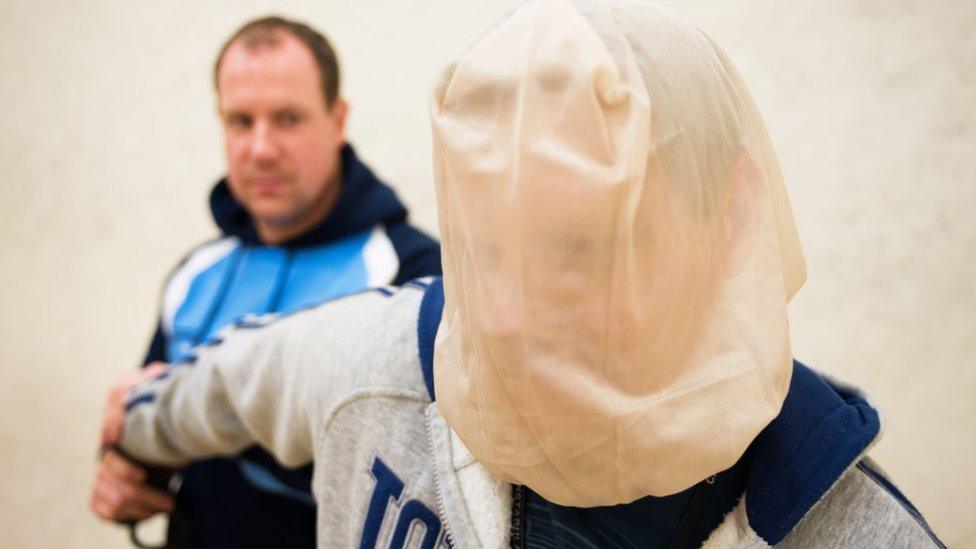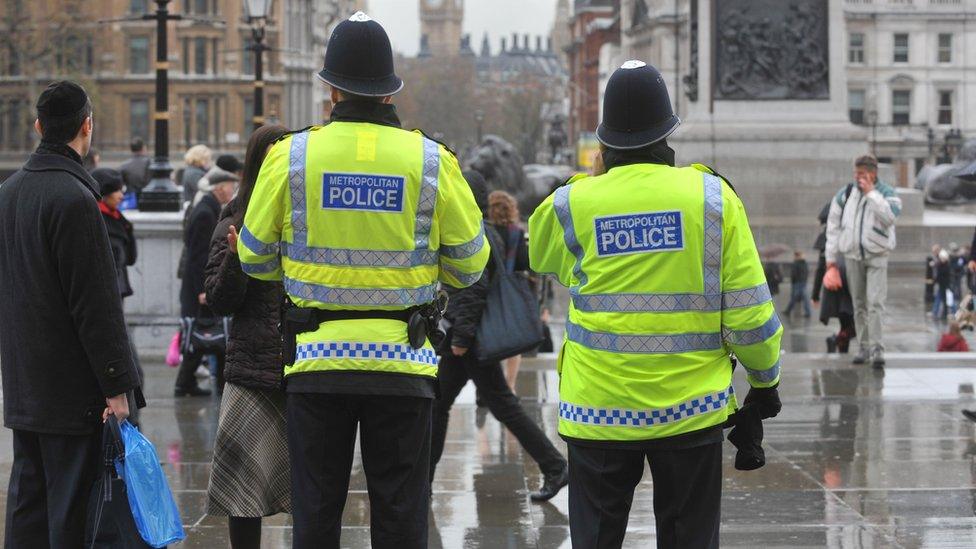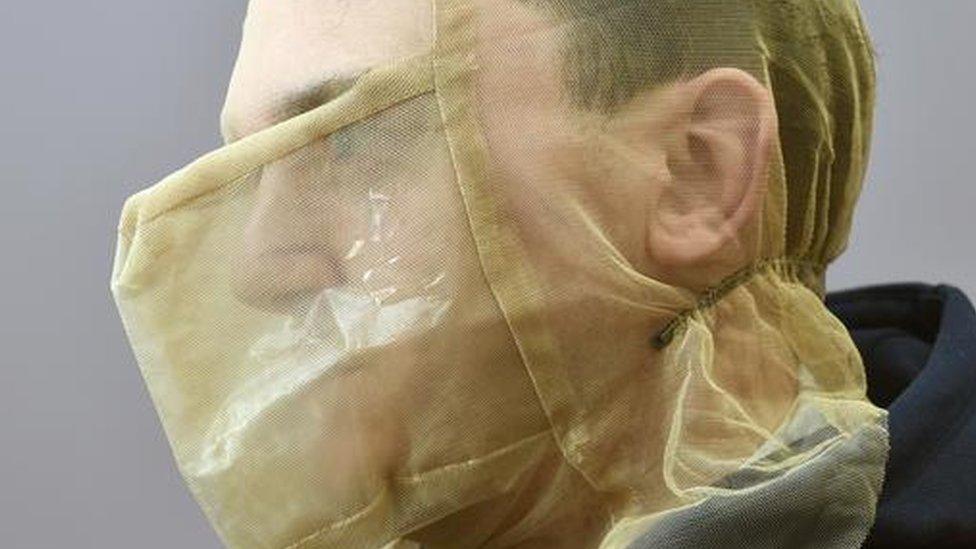Front-line Met officers 'will not get spit guards'
- Published

The mesh hoods are designed to stop people spitting or biting
Front-line Metropolitan Police officers will not be allowed to use spit hoods on people, despite support from the home secretary.
Commissioner Cressida Dick said the equipment should only be used in custody suites and not during arrests.
Civil liberties groups have called the mesh hoods placed over suspects' heads "dangerous and degrading".
The Met Police Federation called the move "absurd", insisting the hoods "do not cause any stress whatsoever".
The Federation's Chairman Ken Marsh said "no member of public will ever see a spit guard until they have spat at one of my colleagues".
Home Secretary Sajid Javid has backed calls for spit and bite guards across all forces in England and Wales.
British Transport Police are currently permitted to use spit hoods in arrests on London's streets and the Met has used hoods in all custody suites during an extended pilot scheme.
Since July 2017 the Metropolitan Police has deployed spit guards 151 times.

Spit guards will not be rolled out to front-line Met police officers
Gracie Bradley, Advocacy Manager for Liberty, said: "This is a step in the right direction from Cressida Dick.
"No-one deserves to be assaulted as part of their job, which is why police officers already have many tools at their disposal to defend and protect themselves.
"But spit hoods are degrading, dangerous and have been linked to deaths in custody, and a robust case for their use has not been made."
Sadiq Khan, the mayor of London, confirmed their use would not be extended, external to the front line.
Met Police Deputy Assistant Commissioner Matt Twist said: "Spitting and biting is a particularly unpleasant form of assault which rightly generates a lot of concern amongst officers.
"Over a number of years the Met has been looking at potential ways of minimising the threat this issue poses to officers and staff. One of the options that has been considered is spit and bite guards.
"We continue to monitor the use of spit and bite guards in the Met and are working with the Met Federation about encouraging police officers to report when they are spat at so we ensure we have accurate records of this."
- Published8 February 2017

- Published25 August 2017

- Published23 May 2018
